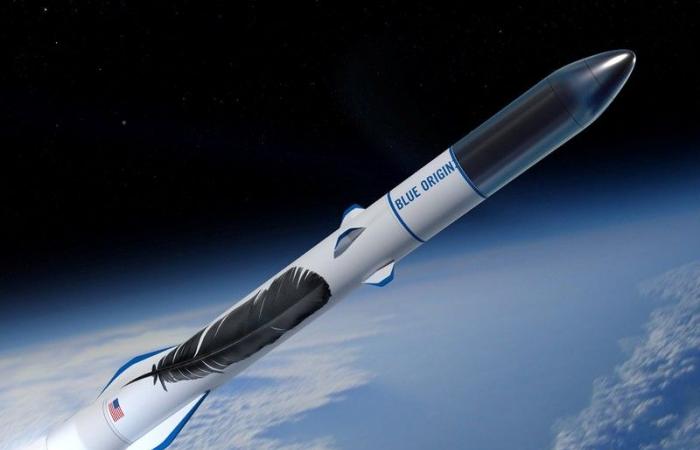Jeff Bezos and his company Blue Origin marked a turning point in space history by successfully launching their New Glenn rocket into orbit. After several postponements, it’s time to celebrate in Florida, site of the inaugural launch of this new machine.
A new era of space conquest is underway. In 2025, it is no longer just about States asserting their power in space, but also about large companies run by billionaires with interstellar ambitions. After the successes of Elon Musk CEO of Tesla and SpaceX, it’s the turn of Jeff Bezos, founder ofAmazonto make a major breakthrough with Blue Origin.
Blue Origin, an actor to follow
The story of Blue Origin begins in the early 2000s, alongside SpaceX. While Elon Musk aims for Mars, Jeff Bezos sets a different goal: making space more accessible by reducing costs and developing space tourism. In 2015, Blue Origin made its first successful tests with New Shepard, a suborbital rocket dedicated to tourist flights. The company decides to invest in satellite internet with Kuiper, Starlink’s direct competitor at SpaceX. For this, the New Shepard rocket is no longer enough, we must aim for orbit.
The launch of New Glenn represents a new chapter. With its 98 meters in height, this impressive rocket successfully completed its first orbital flight this Thursday morning, confirming the ambitions of Bezos and his team. However, everything was not perfect: the boosters, supposed to be recovered for reuse, were lost during this mission. Dave Limp, CEO of Blue Origin, puts this failure into perspective by declaring that the priority was the success of the orbital flight. Elon Musk considered it ambitious to mix orbit and recovery from the first flight and did not fail to congratulate Bezos and Blue Origin for this success.
A new space conquest in full swing
New Glenn’s flight isn’t over yet. The rocket carries a prototype multi-purpose tugboat, the Blue Ring, which will be technically tested. Its ultimate goal will be to move satellites to their final orbits. Blue Origin already has ambitious plans for 2025, including the deployment of its Kuiper constellation, intended to compete with SpaceX’s Starlink, which already has more than 12,000 satellites in orbit.
The battle for satellite internet, however, is only one part of this new race. The ultimate destination remains Mars. SpaceX is ahead in this area with its Starship mega-rocket, which is preparing for a new test in the days or even hours to come. Blue Origin, for its part, has signed contracts with NASA for an unmanned flight to Mars and with the American government for national defense projects. In short, a new space conquest begins.






